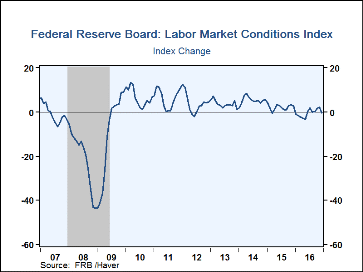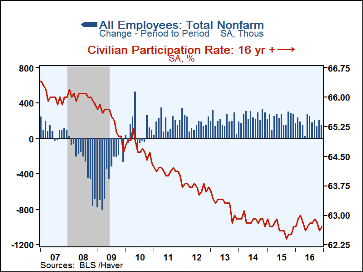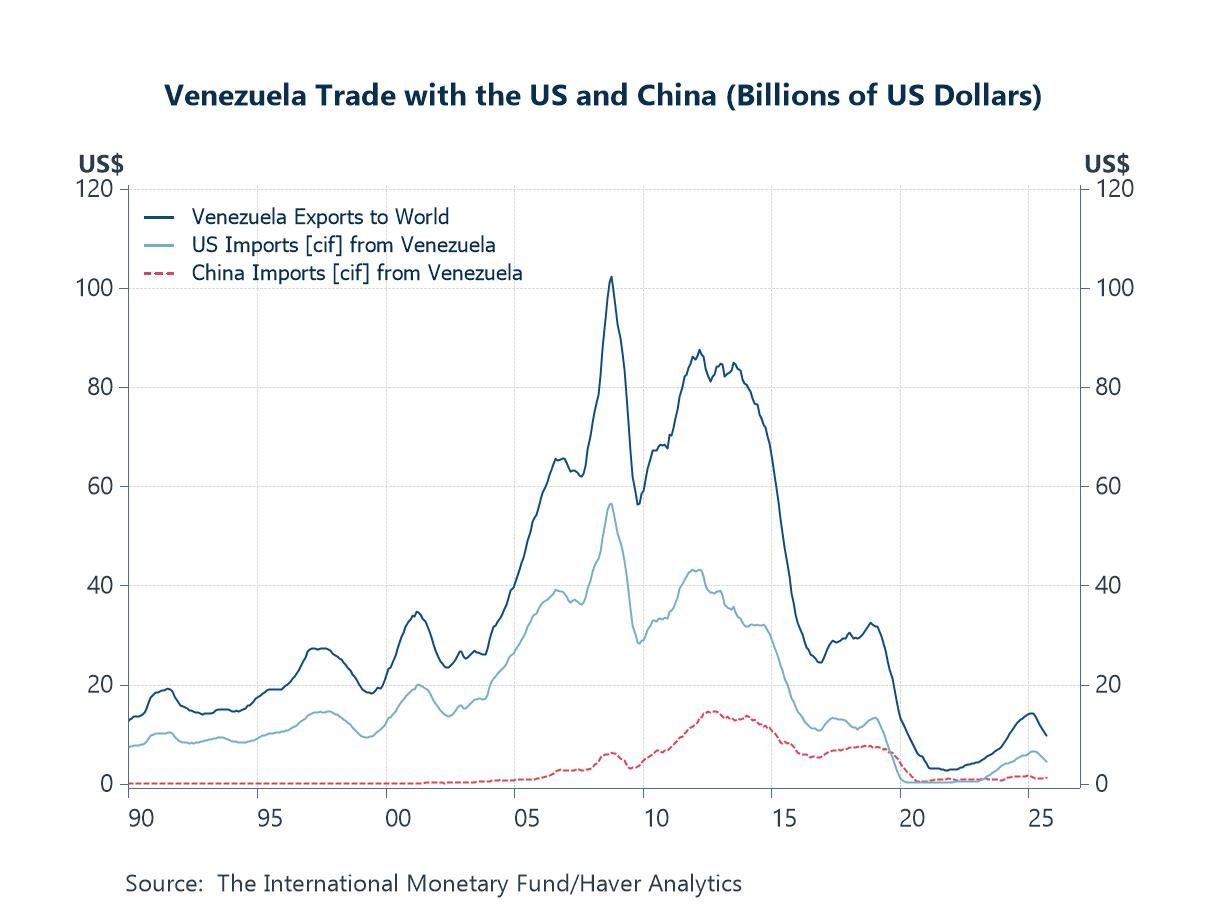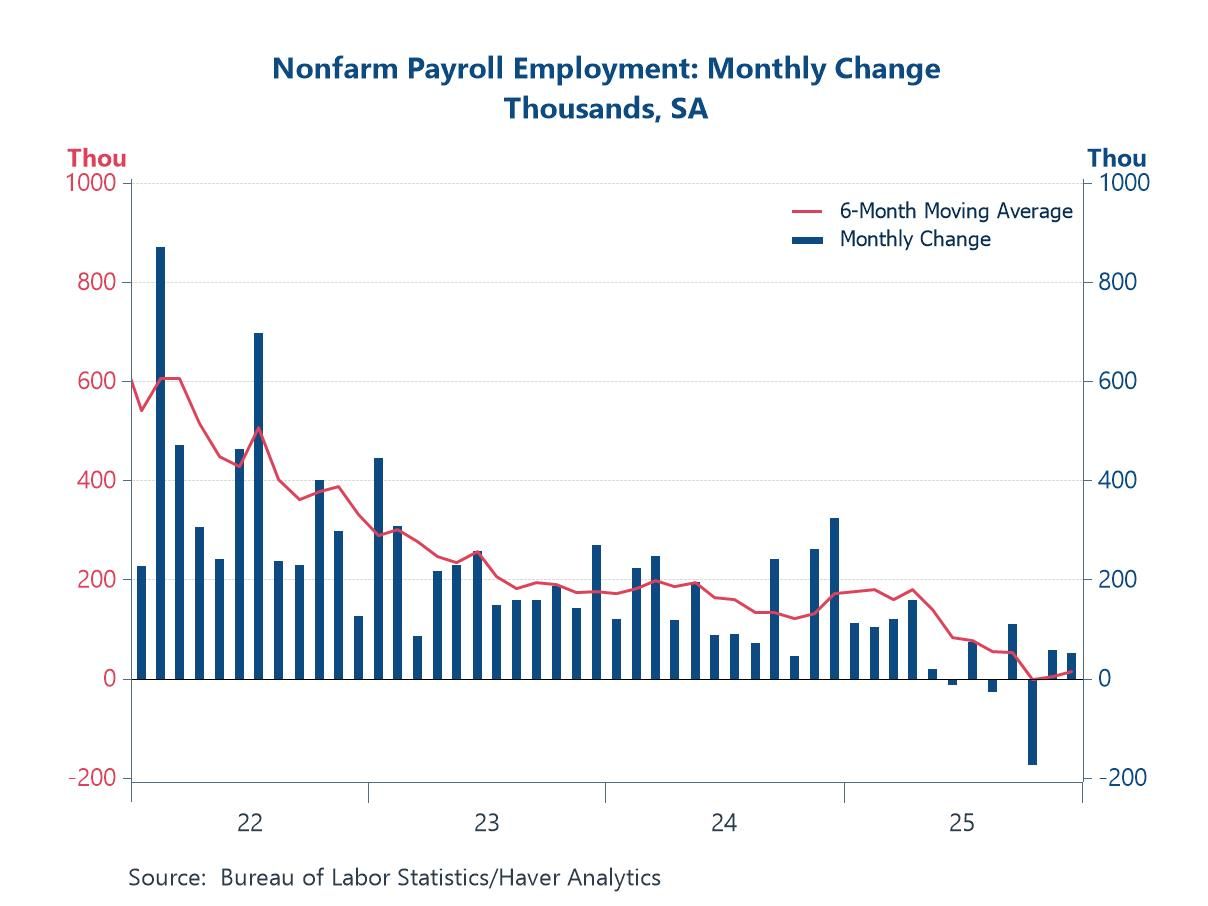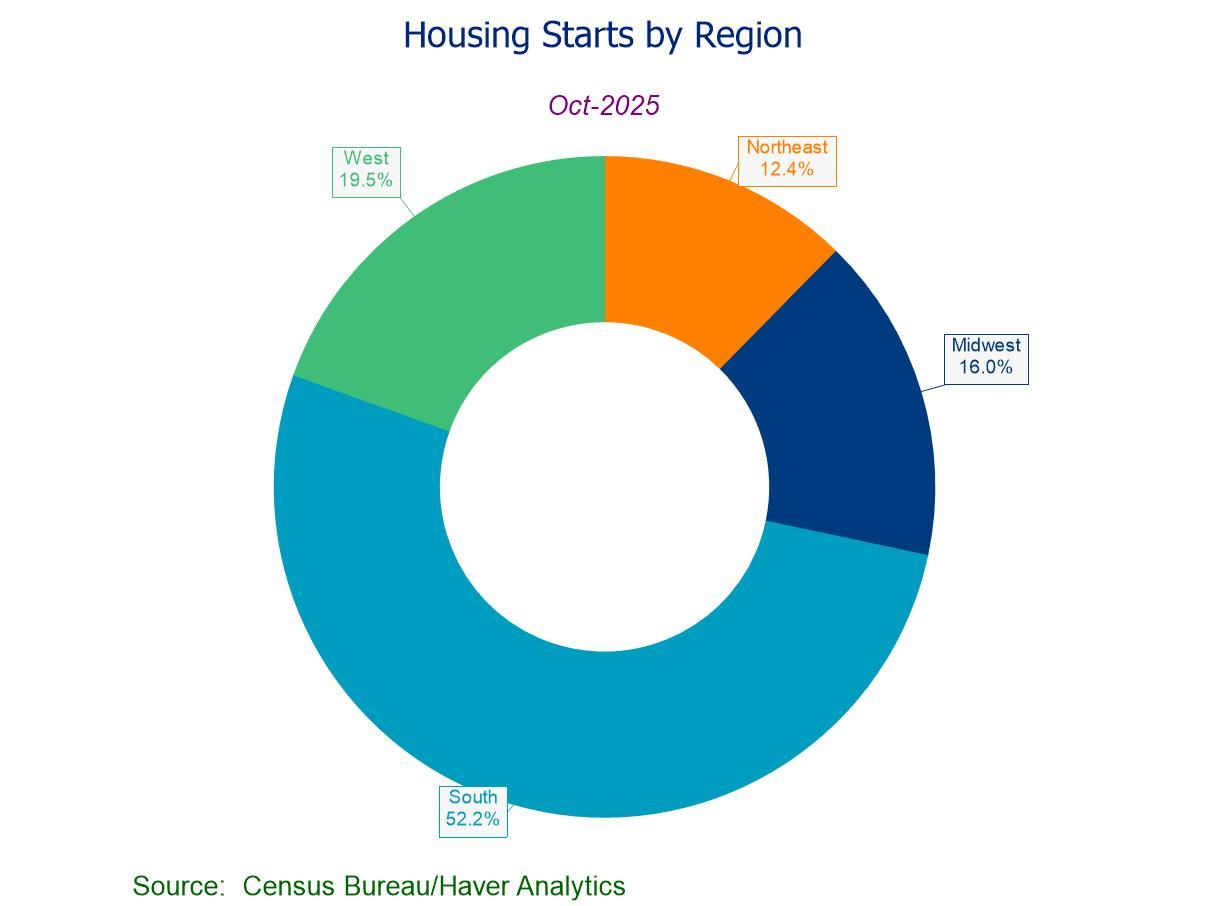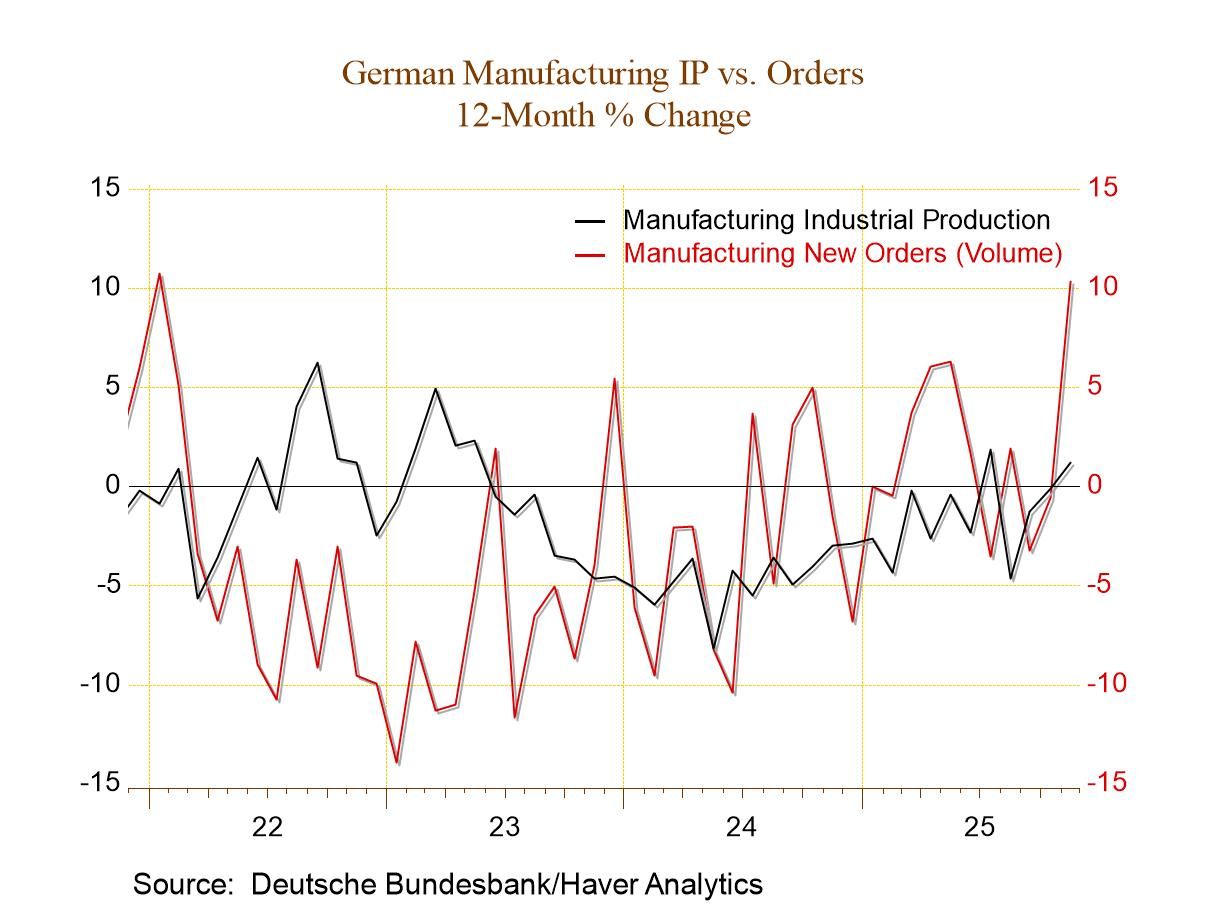 Global| Jan 09 2017
Global| Jan 09 2017U.S. Labor Market Conditions Index Turns Negative
by:Tom Moeller
|in:Economy in Brief
Summary
The Labor Market Conditions Index (LMCI) from the Federal Reserve Board includes 19 indicators of labor market activity, covering the broad categories of unemployment and underemployment. These include jobs, workweeks, wages, [...]
The Labor Market Conditions Index (LMCI) from the Federal Reserve Board includes 19 indicators of labor market activity, covering the broad categories of unemployment and underemployment. These include jobs, workweeks, wages, vacancies, hiring, layoffs, quits and other surveys of consumers and businesses. Because the trends in the index are slow-moving, Haver presents only the changes in the index. All are measured monthly and have been seasonally adjusted.
During December, the index value deteriorated to -0.3 from 2.1 in November, revised from 1.5. It was the first negative reading since May. During all of 2016, the index value also was below zero. At -0.5, it was the first negative figure since 2009. Contributing negatively in December were slower payroll employment growth, a higher unemployment rate and more continuing claims for jobless insurance. Contributing positively were a quicker rise in average hourly earnings, a higher labor force participation rate and fewer initial claims for jobless insurance.
The LMCI data are available in Haver's USECON database.
Low Interest Rates and the Financial System from Fed Governor Jerome H. Powell is available here.
| Labor Market Conditions Index (SA) | Dec | Nov | Oct | Dec'15 | 2016 | 2015 | 2014 |
|---|---|---|---|---|---|---|---|
| Monthly Index Change | -0.3 | 2.1 | 1.7 | 2.4 | -0.5 | 2.0 | 5.3 |
Tom Moeller
AuthorMore in Author Profile »Prior to joining Haver Analytics in 2000, Mr. Moeller worked as the Economist at Chancellor Capital Management from 1985 to 1999. There, he developed comprehensive economic forecasts and interpreted economic data for equity and fixed income portfolio managers. Also at Chancellor, Mr. Moeller worked as an equity analyst and was responsible for researching and rating companies in the economically sensitive automobile and housing industries for investment in Chancellor’s equity portfolio. Prior to joining Chancellor, Mr. Moeller was an Economist at Citibank from 1979 to 1984. He also analyzed pricing behavior in the metals industry for the Council on Wage and Price Stability in Washington, D.C. In 1999, Mr. Moeller received the award for most accurate forecast from the Forecasters' Club of New York. From 1990 to 1992 he was President of the New York Association for Business Economists. Mr. Moeller earned an M.B.A. in Finance from Fordham University, where he graduated in 1987. He holds a Bachelor of Arts in Economics from George Washington University.


